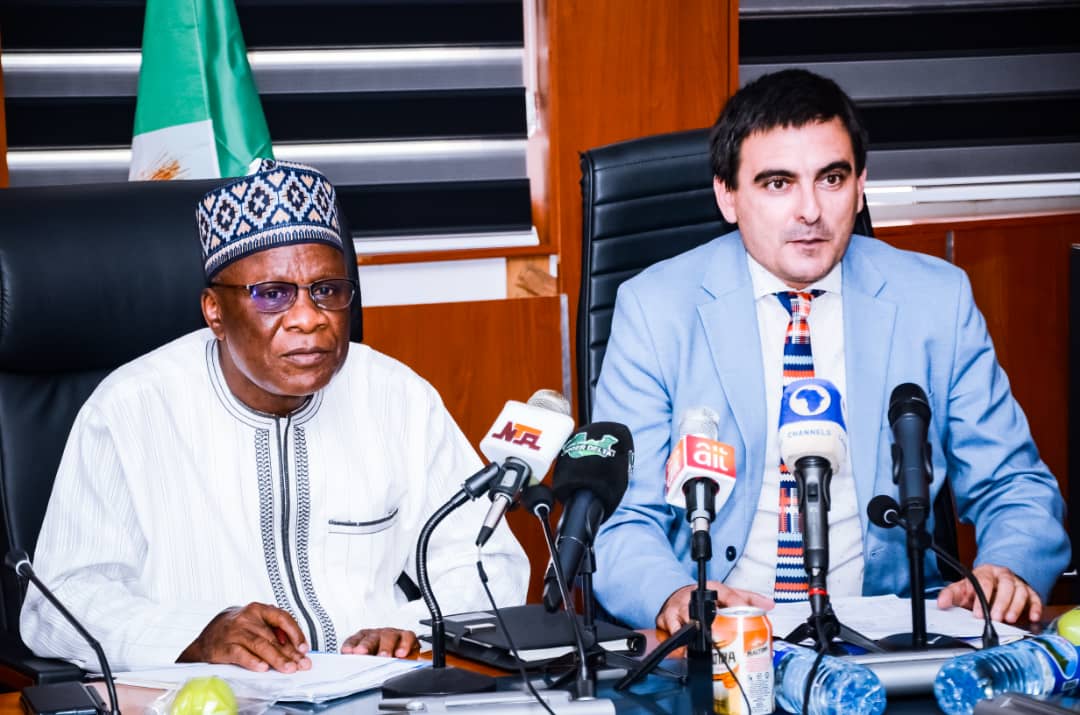By Ignatius Ushie
Minister, Ministry of Niger Delta Development (MNDD), Engr. Abubakar Momoh has disclosed that the ministry which serves as a primary vehicle in executing government plans and programmes, is considering a new approach in tackling Insecurity, Environmental Degradation and Human Development issues with the European Union (EU) to foster a healthy development of the region.
In a statement made available to Transport Day in Abuja, Engr. Momoh made this known when he hosted the Head of the European Union (EU) delegation, Mr. Ruben Alba Aguilera, who paid him a courtesy visit to his office in Abuja.
According to the former lawmaker, the federal government, in line with its “Renewed Hope” agenda, have a number of plans which is being put together for the development of the Niger Delta region.
“We are charged with the responsibility of executing such plans and programmes for the purpose of developing the region both economically and in other areas. The Ministry also coordinates the activities of other agencies in-line with the Niger Delta Development plan,” he said.
Speaking further, the Minister said that the EU as an international body could intervene in some of the identified socio-economic challenges of the region and help to overcome some of the problems facing the people of the area.
Engr. Momoh stated that the ministry has embarked on several projects and programmes that are ongoing such as Road Construction and rehabilitation, Provision of Jetties, Supply of Water, Construction of Housing Estates, Skill Acquisition Centres, and others.
“We believe that if these projects are fully funded and expanded, will go a long way in checkmating some of the restiveness in the area.
“It is when you have peace that we can prepare for the production of more oil for the development of the country”, he said.
In his remarks, the EU representative, Mr. Ruben Alba Aguilera noted that the Niger Delta crisis is an age-long issue in which the EU has always been involved and is ready to be acquainted with the work that the ministry is doing and also to partner with it to get the problems resolved.
According to Aguilera, “We need to holistically look at how the ministry would address the challenges and how the EU can complement the ministry’s efforts in this regard. We also want to understand how it is working with other development partners and how we can work together with other development agencies to put together a strategy and working document to get an understanding of top priority projects that would create an impact in the region,” he said.













